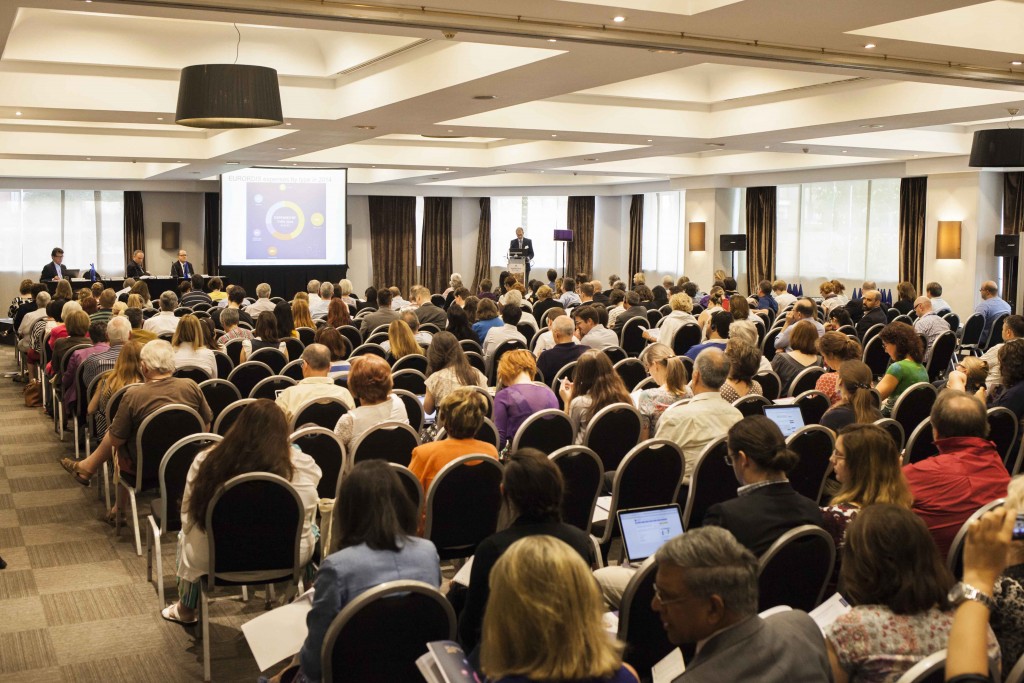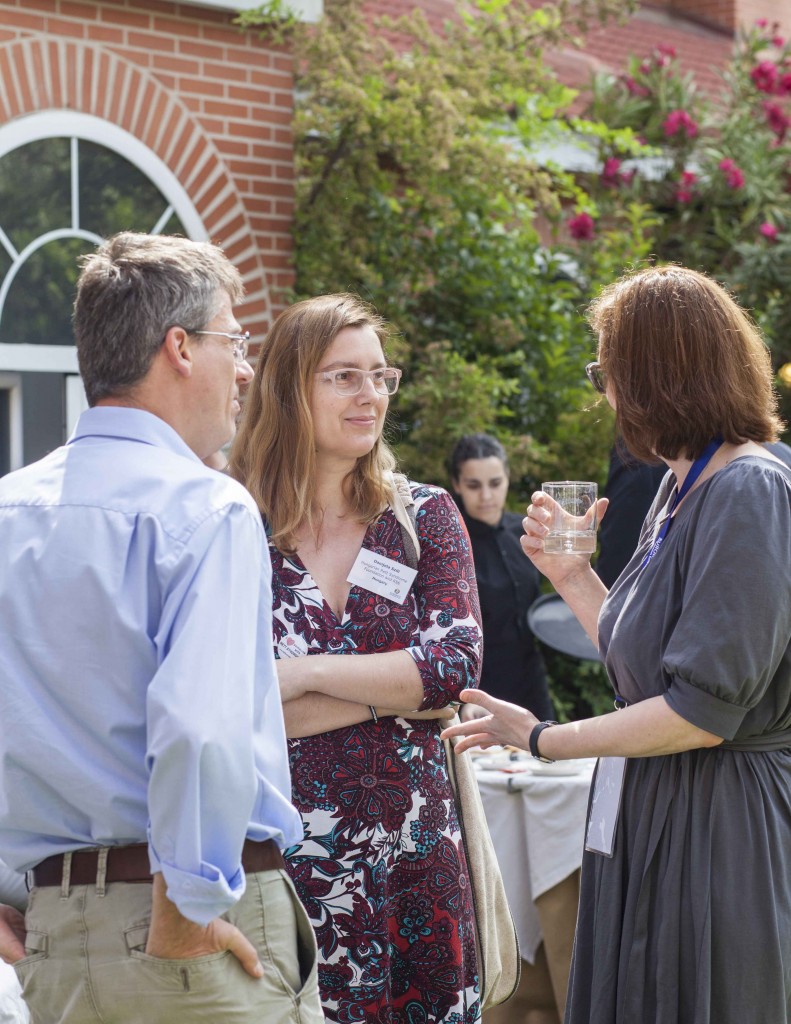By Danijela Szili.
Each year, the EURORDIS Membership Meeting provides over 200 patients, patient organisations, policy makers and other stakeholders with networking opportunities and capacity-building workshops to improve the lives of those living with a rare disease.
The EURORDIS Membership Meeting workshops are designed to allow patients to develop the knowledge and ability to advance policies and services for rare disease patients in their country and local communities. The EURORDIS Membership Meeting provides an opportunity for EURORDIS members to network, sharing best practices and increasing knowledge of issues integral to member organisations and the rare disease community and environment in each member’s country.
This year, the EMM took place in the city of Madrid (Spain) and a large part of the meeting was dedicated to European Reference Network Centres, following last year’s introduction.
ERN of Centres of Expertise
A European Reference Network of Centres of Expertise (ERN) is a network of at least 10 national Centres of Expertise (CE) from at least 8 EU member states. The goal of an ERN is the improvement in the overall quality and management of care of a single rare disease (RD) or a group of RDs with similar health care needs by complementing, supporting and providing added-value to the existing services and expertise at the national level. ERN could facilitate multicentre clinical trials and research. Patient involvement in their work and a presence in the governing boards needs to be ensured. This is something EURORDIS is working on very hard. However, it is still not known how patients will be involved.
The funding for ERN is going to be a huge issue since there will be no allocated funds for this in EU. A part of the 2015-2020 budget will be saved (seed money) for the support and coordination of the ERN.
It is expected that each member state would fund the leading national CE in its own country, if one exits.
In relation to this, the possibility for the Pharmaceutical industry to get more involved in the funding was discussed. The incentives for them would be facilitation of research and clinical trials in the case of existing ERN. There is no agreement on this issue yet, but some interesting discussions took place during the EMM with stakeholders from industry. There are also fears from patient groups that their role in the decision making would be slowly diminished and that after a while they would be completely excluded from it. This was the case before and a danger for this happening again is still present. Patients pushed, and did a lot for this huge project to become a reality and our role in the future would be to make sure they stay involved in the work of CE as decision makers.
It is still not known for sure how many ERN will exist in Europe, but the most probable option is that RD will be grouped into about 20 categories. This classification is still a subject of discussion and is not published yet. It is expected that the conclusion on this matter would be reached in July on the workshop for healthcare professionals and Patient representatives should be in the contact with the clinicians involved in their field and make sure they attend this workshop.
Important European Commission conference on ERN will take place in Lisbon in October. Clinicians and policy makers should attend.
Call for ERN at the end of 2015!
Only national Centres of Expertise (CE) who are officially recognized, accredited by the member state can be in the ERN. The role of patient organisations would be to try to push this accreditation process in each member state by official national authorities and make sure that they have CE from their country that is eligible.
These are the countries that already have the system in place (accredited CE):
France for rare disease and cancers
Germany for cancers
Netherlands
Spain – not specifically for rare diseases
Sweden
UK
Countries in the preliminary stage: Denmark and Poland
Countries in a planning phase: Italy and lithuania.
This is the information based on the evaluation of the 10 countries analyses.
BMS (Board of Member States) will start receiving applications for ERN starting from December this year and will give a positive or negative decision for each request. It is expected that this will be a dynamic process, there will be an option for the CE to join later and also the re-evaluation will happen on the regular basis. Some of the CE could be excluded from the ERN after a while if they do not show satisfactory results.
The only certain condition known at the moment is that ERN will have to have at least 10 CE from at least 8 member states.
BMS (Board of Member States)-one representative from each member state. It is useful to know who is a representative for the BMS from your member state.
At the CNA Workshop an update was given by Zoe Alahouzou of common goals and mutual commitments.
26 National associations signed it already. This year survey and webinar are planned.
Social services
Social Policy Advisory Group (SPAG)
The EURORDIS SPAG will inform on patients’ and families social challenges and provide advice on social policy, provision of social care and related issues. It already has 9 members.
Please do not hesitate to contact Raquel if you have any questions or would be interested joining the group.
Raquel Castro (Social Policy Manager at EURORDIS)
Rare Connect
EURORDIS reached an agreement with NORD on the ownership of Rare Connect. EURORDIS took over and NORD will stay as just a partner. There will be new logo and new homepage for Rare Connect. This new homepage will have national association logos as partners. It will have a new governing structure, governance model which will be formed soon. It will consist of Members and Partners Committee (MPAC). Members will have one year mandate.
New features will be two new languages Portuguese and Russian. Notifications for all members and discussion groups available soon. Discussion groups will not be disease specific, just topic specific. Some form of translation into national languages was mentioned.
On May 28, 2015 RDI (Rare Disease International) was launched.
http://www.eurordis.org/news/launch-rare-diseases-international-global-voice-rare-disease-patients
More about the program can be found here.
More photos here.


